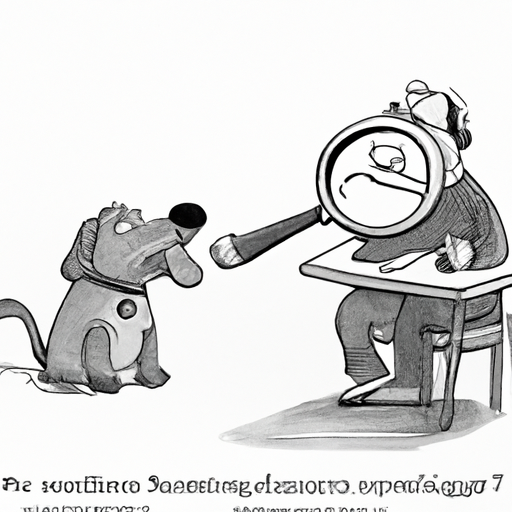No doubt, you’ve experienced the curious case of a dog sniffing you. Whether it’s your furry companion or a random dog you meet on the street, their noses seem to be drawn to you like a magnet. But why do dogs smell you? This article will delve into the fascinating world of canine olfaction and provide a comprehensive understanding of why dogs are so interested in our scent.
H2: The Power of a Dog’s Nose
To understand why dogs smell you, let’s first explore the capabilities of a dog’s nose. The sense of smell is the dog’s primary sense. Their noses are anatomically designed to be potent scent detectors.
- Olfactory Receptors: Dogs have between 125 to 300 million olfactory receptors in their noses, compared to the mere 5 million in humans. This means their sense of smell is between 1,000 to 100,000 times more potent than ours.
- Brain Power: The part of a dog’s brain that analyzes smells is, proportionally speaking, 40 times greater than ours.
- Nasal Turbinates: These are intricate, bony structures in the nasal cavity that house the olfactory receptors. In dogs, they are much more elaborate and extensive than in humans.
| Dogs | Humans | |
|---|---|---|
| Olfactory Receptors | 125-300 million | 5 million |
| Smell-Dedicated Brain Space | 40 times more | – |
H2: Why Do Dogs Smell You: The Science Behind It
Dogs use their extraordinary olfactory abilities to gather information from their environment, including from us. When a dog smells you, they’re not just enjoying your perfume or deodorant; they’re learning about you in ways you might not even imagine.
- Identity: Dogs can tell individual people apart by their unique scent profiles. Each person has a distinct “scent fingerprint” that dogs can recognize.
- Emotions: Dogs can smell your emotional state. Certain emotions, like fear or anxiety, can cause you to sweat more and release a distinct odor that dogs can pick up.
- Health: There are anecdotes of dogs detecting diseases like cancer in their owners. While more research is needed, it’s thought that dogs may smell the change in body chemistry caused by the disease.
H2: How Dogs Interact with Human Scents
It’s not just about why dogs smell you, but also how they interact with the scents they pick up. Canine communication is largely based on scent.
- Tail Wagging: If a dog likes your scent, they might wag their tail. This is a sign of friendliness and acceptance.
- Barking or Growling: If a dog perceives your scent as a threat, they might bark or growl. This is their way of warning you to back off.
- Sniffing Intently: If a dog is very interested in your scent, they might sniff you intently. This is a sign of curiosity and is usually harmless.
H2: Encouraging Positive Scent Interactions with Dogs
Even knowing why dogs smell you, it can sometimes be uncomfortable or embarrassing when a dog sniffs you intently. Here are a few tips to encourage positive scent interactions with dogs:
- Stay Calm: Dogs can smell your fear or anxiety. Stay calm and relaxed, and the dog is likely to react similarly.
- Don’t Pull Away: If a dog is sniffing you, don’t pull away suddenly. This could startle the dog and cause them to react negatively.
- Let Them Sniff: If you’re comfortable, let the dog sniff you. This allows them to familiarize themselves with your scent and can help build trust.
H2: Frequently Asked Questions
-
Why does my dog smell me when I come home?
Dogs smell you when you come home to gather information about where you’ve been and what you’ve been doing. It’s their way of catching up on your day. -
Can dogs smell my emotions?
Yes, dogs can smell your emotional state. Changes in your body chemistry when you’re scared, happy, or anxious can produce different scents. -
What should I do if a dog’s sniffing makes me uncomfortable?
If you’re uncomfortable, calmly move away from the dog or ask the dog’s owner to redirect their pet’s attention.
In conclusion, dogs smell us to learn more about us and our environment. Their keen sense of smell is a powerful tool for communication and understanding the world around them. So the next time a dog sniffs you, remember, they’re just trying to get to know you better.



